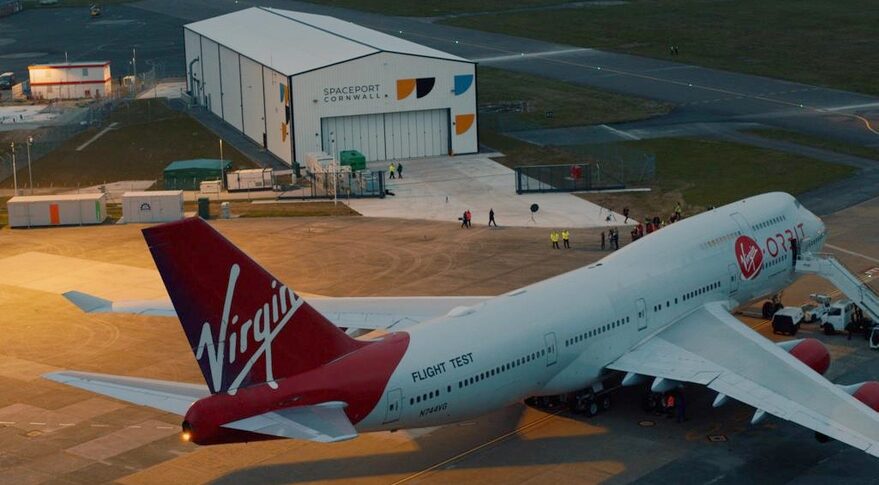WASHINGTON — An English airport has secured the first-of-its-kind spaceport license from a British regulator that brings it one step closer to hosting the country’s first orbital launch.
The United Kingdom’s Civil Aviation Authority (CAA) announced Nov. 16 that it had issued its first spaceport license to Spaceport Cornwall, located at Cornwall Airport Newquay in southwestern England. The license will allow the spaceport to host launches by Virgin Orbit’s LauncherOne air-launch system.
The license, analogous to the launch site operator’s license issued by the U.S. Federal Aviation Administration, confirms that the spaceport can host launches without endangering public safety or the environment. Each company seeking to launch from the spaceport would need its own launch license, also issued by the CAA.
“This is an historic moment as we license the first ever spaceport in the U.K.,” said Richard Moriarty, chief executive of the CAA, in a statement announcing the license. “We’re proud to be playing our part in facilitating the UK’s space ambitions through assessing the safety, security and other requirements of these activities.”
“The regulatory environment created by the Civil Aviation Authority ensures that U.K. launch will set the global bar in terms of responsibility and transparency,” Melissa Thorpe, head of Spaceport Cornwall, said in the statement.
While Virgin Orbit has set up operations at the spaceport, including sending its Boeing 747 aircraft, LauncherOne rocket and other support equipment there, the company is still waiting for a launch license from the CAA. In the statement, the agency said it was in “very advanced stages” of evaluating that company’s launch license application, but did not state when it anticipated completing that evaluation.
Both the company and U.K. government officials remain hopeful the license can be issued in time for a launch, the first orbital mission from the U.K., before the end of the year. “The first ever spaceport license granted by the U.K. Civil Aviation Authority is another major milestone as we look forward to the first satellite launch from U.K. soil this year,” Ian Annett, deputy chief executive of the U.K. Space Agency, said in a statement.
Dan Hart, chief executive of Virgin Orbit, said in the announcement that he was looking forward to a launch “in the coming weeks.” During a Nov. 7 earnings call, though, he acknowledged that the licensing process was taking longer than the company originally expected.
“The good news is that we don’t see a showstopper or a big issue we’re working,” he said then. “But, it is taking longer than we had anticipated and it is taking a bit more effort than we anticipated as well.”
The delays had prompted criticism from a U.K. Parliament committee, which in a Nov. 4 report called on the CAA to assign more personnel to its space licensing efforts. However, the CAA had already brought in more people to work on licensing by the time the report was released, from 35 to 50 people, including one person seconded from the FAA’s Office of Commercial Space Transportation.
A source familiar with the CAA’s licensing activities, speaking on background, said staffing was not the limiting factor in reviewing license applications, but instead the amount of work required to complete applications and the ability of applicants to provide required information. Those reviews were closely matching original expectations of 9 to 18 months for a launch license and up to nine months for a spaceport license.
The CAA is working with several other launch vehicle and spaceport operations on their license applications, the agency stated in its announcement of the Spaceport Cornwall license, including recently starting an environmental review of the proposed SaxaVord spaceport in the Shetland Islands for vertical launches.

